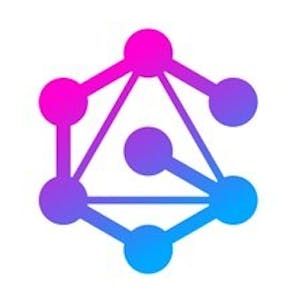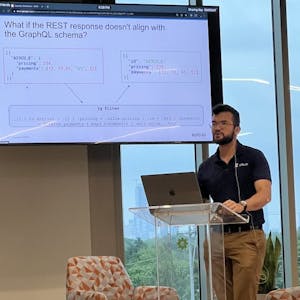156 min
Masterclass práctico con SwiftUI, GraphQL y Neo4j AuraDB
Workshop
Aplica el poder de los grafos al desarrollo de aplicaciones móviles iOS en este masterclass práctico. Exploraremos cómo utilizar la biblioteca Neo4j GraphQL para construir APIs de GraphQL respaldadas por Neo4j AuraDB y cómo integrar GraphQL en una aplicación iOS utilizando SwiftUI y la biblioteca Apollo iOS GraphQL mientras construimos una aplicación móvil de lectura de noticias.
Tabla de contenidos:- Introducción a Neo4j AuraDB- Construcción de APIs de GraphQL con la biblioteca Neo4j GraphQL- Introducción a SwiftUI- SwiftUI + GraphQL
Requisitos previosPara seguir el masterclass, los asistentes necesitarán una computadora Mac con una versión reciente de Xcode instalada. Será útil tener cierta familiaridad con Swift y el desarrollo de aplicaciones iOS, aunque no es necesario.
Tabla de contenidos:- Introducción a Neo4j AuraDB- Construcción de APIs de GraphQL con la biblioteca Neo4j GraphQL- Introducción a SwiftUI- SwiftUI + GraphQL
Requisitos previosPara seguir el masterclass, los asistentes necesitarán una computadora Mac con una versión reciente de Xcode instalada. Será útil tener cierta familiaridad con Swift y el desarrollo de aplicaciones iOS, aunque no es necesario.

























